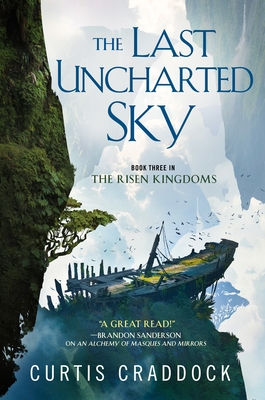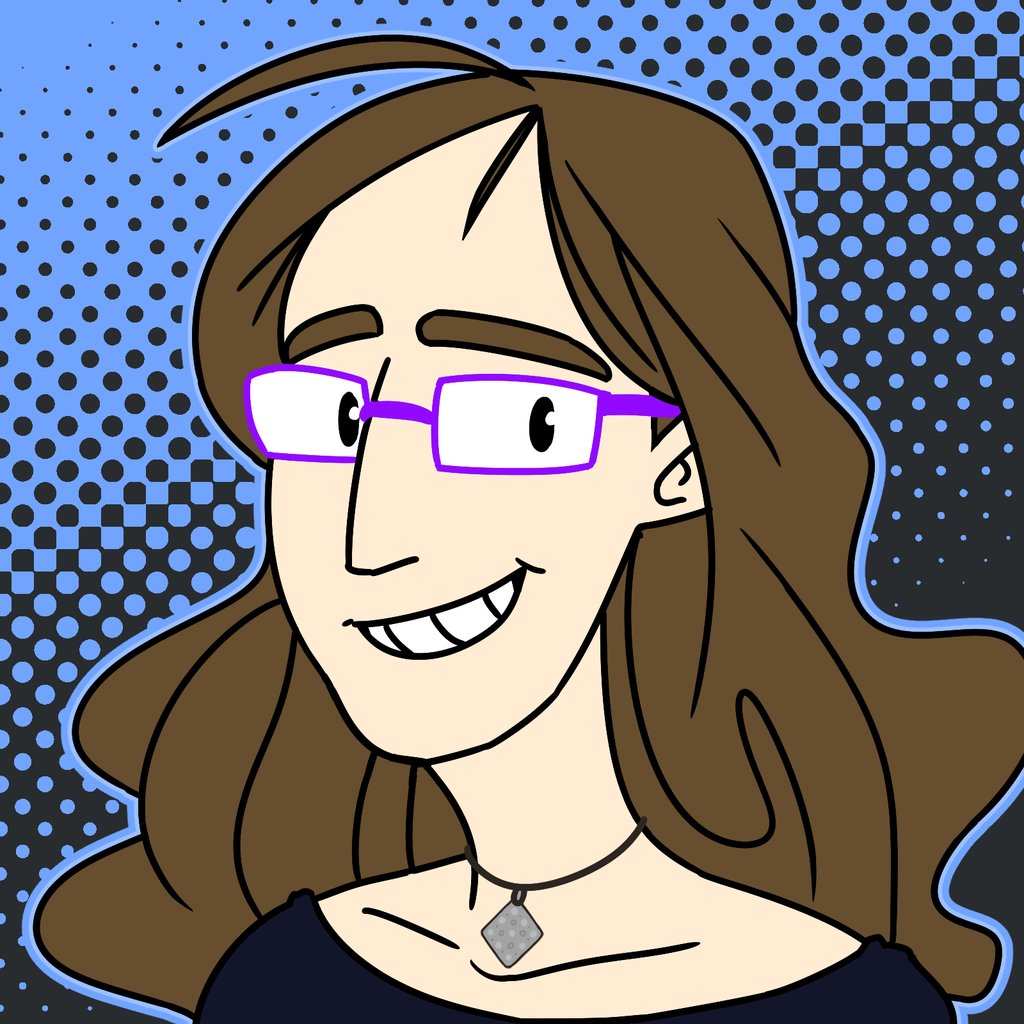"The Last Uncharted Sky" review
Overview
Title: The Last Uncharted Sky
Author: Curtis Craddock
Subgenre: Steampunk, adventure
2021 Bingo squares: Found family, Genre mashup
Recommend: Yes, you should finish the series
Stars: 4/5
Review
I don’t think it was possible for this series to fully live up to the standard set by book 1, and it didn’t, but by no means does that make the next two books unentertaining or low quality. Book 3 falls off a bit more even more than book 2 did, but it’s still a very fun, fast-paced adventure story set in an vivid steampunk world with a deep lore and cool magic system.
The Last Uncharted Sky changes tone significantly from the first two novels in the trilogy; where An Alchemy of Masques and Mirrors and A Labyrinth of Scions and Sorcery were both mazes of political intrigue, the conclusion is a sprawling adventure with much more of a focus on its characters. It picks up shortly after where Labyrinth left off, with Isabelle about to set sail for the Americas, I mean, Craton Auroborea and the wreckage of the Conquest. Unfortunately, two things doom Isabelle’s expedition before she departs Craton Massif. First, Sireen, newly reine, insists on sending her bloodhollow with Isabelle. The conversation goes something like this:
Sireen: Isabelle, you must take my bloodhollow with you.
Isabelle: Madame, no! You already sent one living, breathing plot device with me! Surely you cannot mean to send a second!
Sireen: Indeed, Sagax Quill will be on board. Surely his presence is sufficiently disruptive that my bloodhollow cannot cause you further harm.
Isabelle: This conversation is literally taking place on screen!
Sireen: But I wish to see the new Craton myself. I will declare it treason if anyone uses the bloodhollow to contact me without your permission, so your authority cannot be undermined!
Isabelle: …do you know how much treason has taken place in the past two books?
Sireen: The better to make you complacent in the meantime, my dear!
Isabelle: What?
Sireen: I mean, I care about your well being!
Isabelle: I hate you.
(It’s possible I paraphrased a bit.)
Second, Isabelle herself falls victim to the perils of foreshadowing when thinking about her love of mathematics compared to Marie’s passion for fighting when worrying about her friend’s safety:
The difference was, an unsolved equation was unlikely to get her killed.
Nice going, Isabelle. Now someone’s pretty much guaranteed to die because they do math.
(I’m pretty sensitive to spoilers in my reviews; both of these events happen early on, and I decided to write this part of my review before I read much further, no matter what happened, so please don’t take them as any indication of future events that actually do or don’t occur.)
Of course, there are several not-fourth-wall-breaking reasons to be worried. Isabelle’s ancestral voices from her Fenice heritage are unstable. Jean-Claude has just uncovered a plot that seems suspiciously related to their journey. Hailer Dok, their Windcaller guide, is not particularly known for truthfulness. And they’re certain to have…company…in the skies on their way to the Craton. Company that wants to get there before they do.
While the exploration story is pretty fun, it’s hard - nearly impossible - to measure up to the quality of the plot of An Alchemy of Masques and Mirrors, and it doesn’t. The Last Uncharted Sky also introduces a new character, an orphan girl named Rebecca, and I wasn’t entirely a fan of her story arc. I also didn’t really like the Bitterlich-Isabelle plot in the first half of the novel, though it improved significantly partway through. Bitterlich is also added as a POV character, bringing the total up to three POV characters alongside Isabelle and Jean-Claude. His POV adds to the overall narrative, but the romance plot still struggles to go anywhere meaningful in the space allotted to it.
Still, overall the novel is a strong conclusion to an excellent series. An Alchemy of Masques and Mirrors could easily have been a standalone, but its two sequels add depth to the religion, magic, and world of Caelum that give it a satisfying completion. I’ll admit I was a bit reluctant to finish reading the trilogy because the first novel seemed both self contained and also impossible to live up to, but both of the sequels are enjoyable, and it’s well worth following the rest of Isabelle and her chosen family’s adventures.
Spoiler commentary after the break!

Spoilers
The foreshadowing
“How are we doing?” he shouted.
“That depends on how much you trust my arithmetic!”
The light dimmed. The sky closed in and a wall of sleet turned all shapes into shadows. The frigate kept up its fusillade, falling behind. The Saint Asne hooked into the Bittergale’s outer wall and began to accelerate. The third sloop gained on them.
Hailstones whipped across the deck, clawed at the rigging, and pummeled the strakes. Where in all the uncharted skies was that cursed escort? Had she miscalculated?
Well, she said “arithmetic” and not “equations,” but, close enough.
The Bittergale shook the sails and bent the masts. Turbulence threw aeronauts up and smashed them down. One man’s tether snapped and he whisked away, shrieking into darkness.
And they did sort of get someone killed….
Isabelle & Jean-Claude’s trials
Both Isabelle and Jean-Claude are stripped of their greatest strengths in The Last Uncharted Sky: Isabelle first loses (some of) her intelligence due to her potions, and later loses her sanity. Meanwhile, Jean-Claude loses his voice, and has to make due without the ability to communicate to people. Both of them are able to survive their trials, with the help of allies, and regain their strength.
Jean-Claude’s journey here is a bit weaker than Isabelle’s for two reasons:
- He doesn’t really end up stronger overall for it; he doesn’t have some deeper appreciation for communication, or become a better orator, or anything like that. It’s just a narrative paralleling Isabelle’s.
- His ability to speak sign language effectively removes his weakness at the end. I also dislike this plot point because it turns Gretl’s Deafness into a plot device, which is super lame. I had thought it was really cool to include a Deaf character who had no real plot reason to be Deaf, but…oh, she had a plot reason to be Deaf. Sigh.
Rebecca
Rebecca was pretty fun as a character. A plucky orphan pickpocket girl, how could she not be? But I thought she was shoehorned in as Bitterlich’s daughter a bit too hard. Jean-Claude is already Isabelle’s father without being her father by blood; there’s no need for Bitterlich to be Rebecca’s father by blood, especially if they’re going for the curing-his-injury angle at the end of the novel. The coincidence is just a bit too hard to believe here.
The romance
Ugh, not a fan. I hate “conflict because the characters don’t talk to each other” plots, and Bitterlich not talking to Isabelle in this case just seems…so out of character after what they confided in each other in the previous novel. It mostly felt like Isabelle had to be isolated so that she could be susceptible to her ancestors' influence, and so this conflict was invented; notice that the moment Isabelle resolved her conflict, Bitterlich’s distance was no longer necessary to the plot.
I like them together, and I didn’t mind the romance in book 2, but this was just random and unnecessary.
